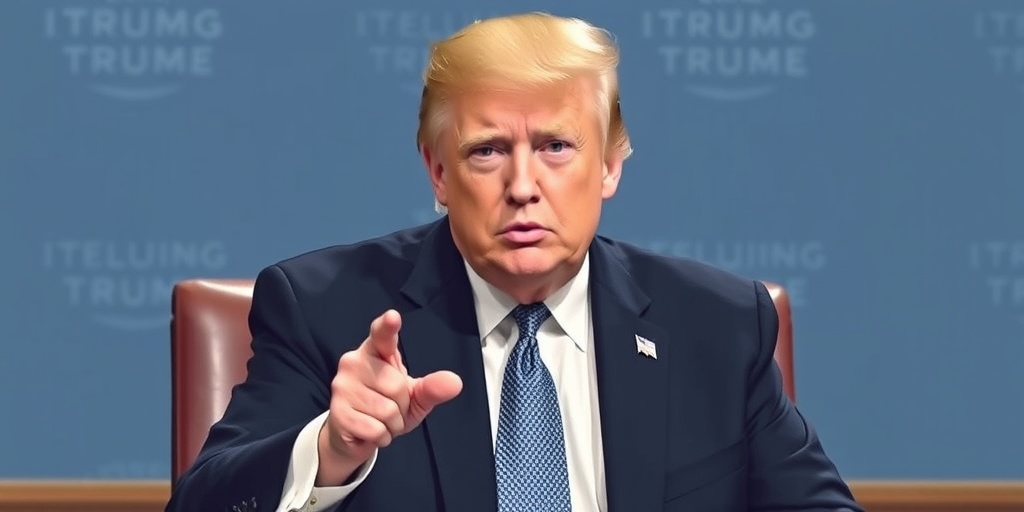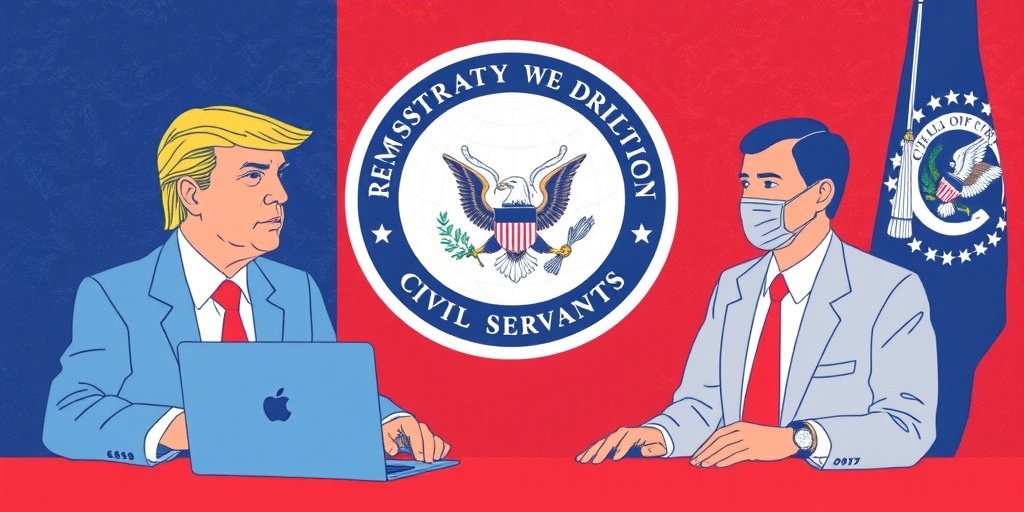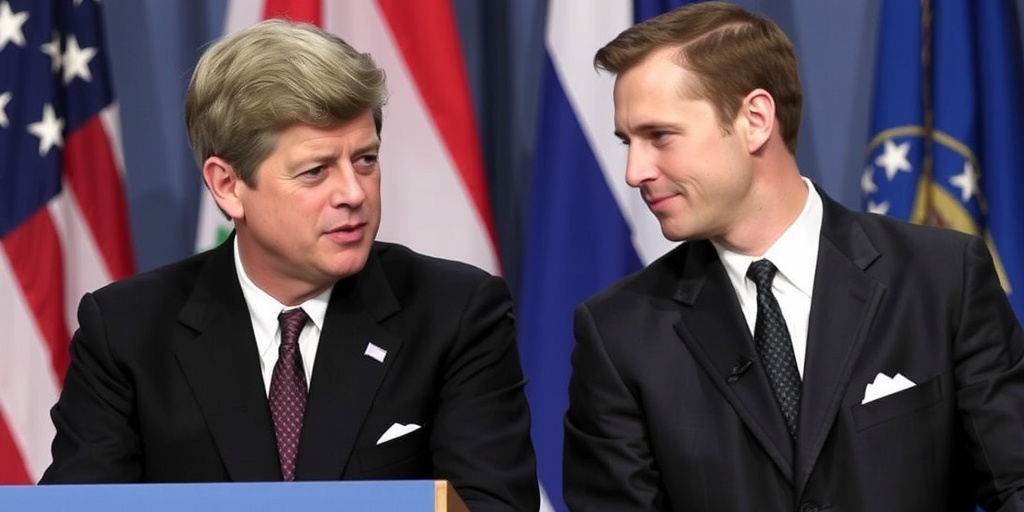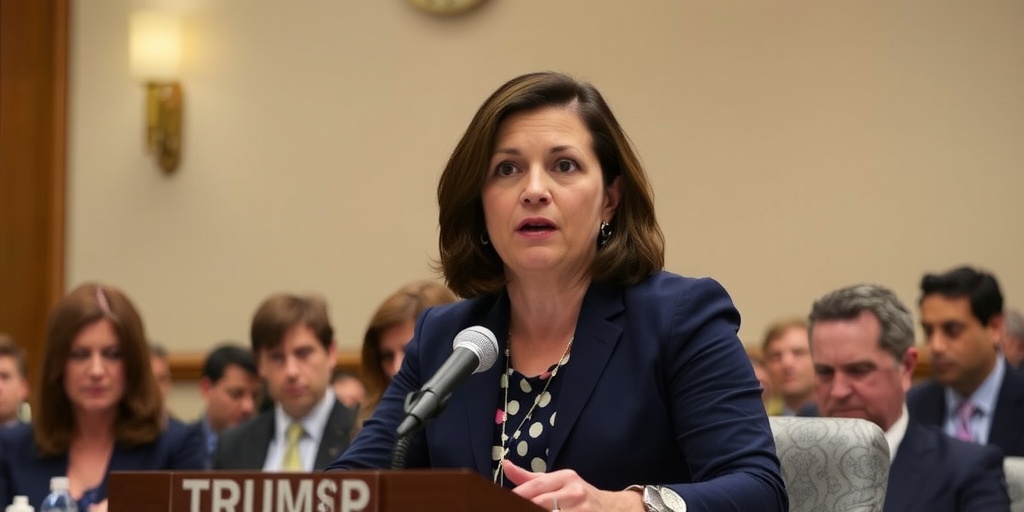Now Reading: Trump Compares Himself to Royalty on Truth Social: ‘Long Live the King’
-
01
Trump Compares Himself to Royalty on Truth Social: ‘Long Live the King’
Trump Compares Himself to Royalty on Truth Social: ‘Long Live the King’
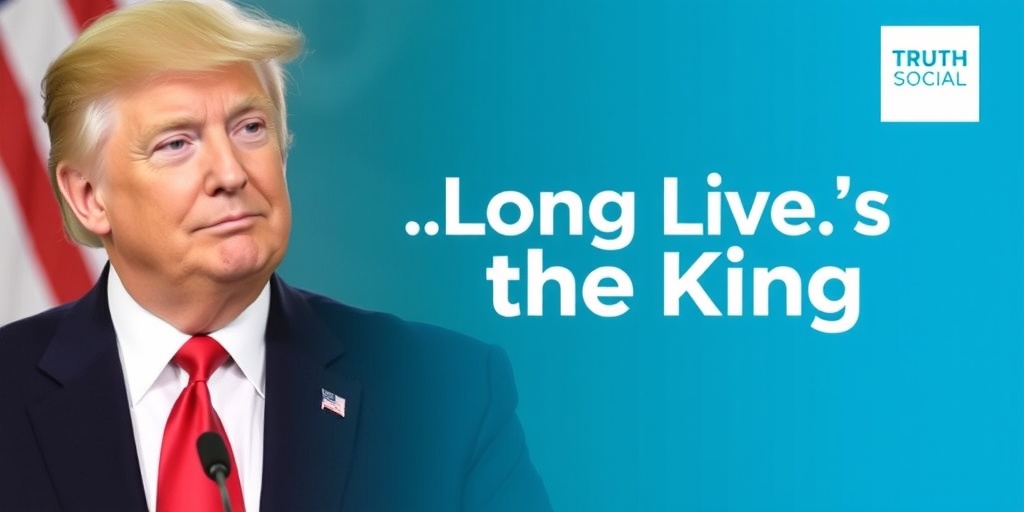
Trump Proclaims Victory Over NYC Congestion Pricing, Emphasizes Monarchical Power in Administration
In a recent post on his social media platform, Truth Social, former President Donald Trump celebrated a significant achievement, declaring victory over New York City’s congestion pricing program, which imposes a toll on most drivers entering Manhattan below 60th Street. In a week marked by bold statements reminiscent of monarchical declarations, Trump wrote, "CONGESTION PRICING IS DEAD. Manhattan, and all of New York, is SAVED. LONG LIVE THE KING!"
This proclamation aligns with Trump’s longstanding opposition to the congestion pricing initiative, which he claims unfairly burdens working-class Americans and poses a threat to New York’s economy. Throughout his campaign, Trump pledged to dismantle the program upon returning to office, alleging its toll structure is detrimental. "If I decide to do it, I will be able to kill it off in Washington through the Department of Transportation," he asserted in a recent interview with The New York Post.
Echoing the sentiment expressed by the former president, Transportation Secretary Sean Duffy confirmed that federal authorities would begin discussions with New York State to facilitate the "orderly cessation of toll operations." Duffy, sharing Trump’s concerns, emphasized the financial strain congestion pricing places on everyday Americans. "I share the president’s concerns about the impacts to working-class Americans who now have an additional financial burden to account for in their daily lives," he stated in his correspondence to Governor Kathy Hochul.
The congestion pricing program, originally designed to alleviate traffic congestion and generate revenue for public transportation infrastructure, has faced significant opposition. Critics of the policy argue it places an undue burden on commuters and could deter business in one of the world’s busiest urban centers. Trump’s fervent rejection of the tolls taps into a broader narrative of his administration prioritizing economic prosperity for citizens and asserting a populist stance.
As Trump’s administration begins its first month back in office, he has consistently projected an image of strength and authoritative leadership. In his Inaugural Address, he echoed themes of divine support in his quest to "make America great again," following an assassination attempt on his life. This rhetoric, combined with recent decisions, suggests a strategy focused on invoking a sense of almost royal power in governance.
Significantly, the former president has been actively issuing executive orders, claiming that actions taken in the name of "saving the country" do not violate legal norms. This posture has drawn criticism and led to an array of lawsuits aimed at challenging various executive actions initiated during his tenure. Legal experts have expressed concern that such a declaration of unbounded executive power undermines the checks and balances essential to the U.S. democratic framework.
The backlash from state officials, particularly Governor Kathy Hochul, has been palpable. Hochul, who previously sought to persuade Trump of the congestion pricing program’s benefits, reacted strongly to Trump’s portrayal of himself as a king. “We are a nation of laws, not ruled by a king,” she stated firmly. Furthermore, she highlighted that the Metropolitan Transportation Authority (M.T.A.) has already initiated legal proceedings in the Southern District of New York to preserve the vital program.
As the political landscape evolves, it remains clear that Trump’s reign as president continues to incite controversy and debate. His unrelenting emphasis on his executive power and the monarchical undertones in his recent rhetoric have kindled tensions between federal authority and state governance. The intersection of popular support, legal challenges, and differing ideologies surrounding governance will create a charged atmosphere in the months ahead.
The implications of Trump’s actions extend beyond New York City; they reflect a broader national dialogue regarding federalism, executive power, and the role of government in regulating urban environments. As congestion pricing remains a contentious issue, the political ramifications may influence upcoming elections and shape public policy discourse across the United States.
In summary, Trump’s declaration of victory over NYC’s congestion pricing exemplifies a broader narrative of power and populism, invoking images of monarchy while igniting legal battles with state authorities. As legal proceedings unfold and public opinion shifts, the ongoing saga serves as a timely reminder of the complexities intertwining governance, law, and public sentiment in contemporary America.
Stay Informed With the Latest & Most Important News
Previous Post
Next Post
-
 01New technology breakthrough has everyone talking right now
01New technology breakthrough has everyone talking right now -
 02Unbelievable life hack everyone needs to try today
02Unbelievable life hack everyone needs to try today -
 03Fascinating discovery found buried deep beneath the ocean
03Fascinating discovery found buried deep beneath the ocean -
 04Man invents genius device that solves everyday problems
04Man invents genius device that solves everyday problems -
 05Shocking discovery that changes what we know forever
05Shocking discovery that changes what we know forever -
 06Internet goes wild over celebrity’s unexpected fashion choice
06Internet goes wild over celebrity’s unexpected fashion choice -
 07Rare animal sighting stuns scientists and wildlife lovers
07Rare animal sighting stuns scientists and wildlife lovers













